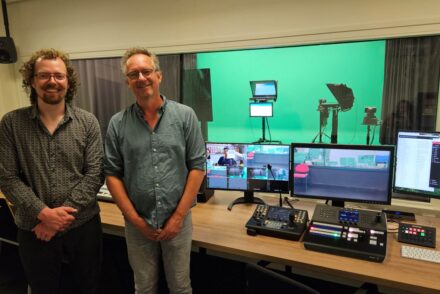TEDxTilburgU: Five lessons about limits
During the second TEDxTilburgUniversity, on Thursday the thirteenth, the theme was Living Limitless. A variety of speakers gave their views on limits in life. All these different angles of incidence yielded some very interesting insights. Five lessons that we’ve learned from the afternoon:
1. We shouldn’t want to live limitless
Almost without exception, the speakers stated that living completely limitless is probably not desirable for us, and impossible withal. The possibilities of our modern times make it tempting to try to even break our final frontier: death. Marja Ruigrok spoke about a ‘death app’, an application on your phone that tells you how much time you have left. Frank Bosman tells the crowd about ‘Soulcloud’, a fictitious system to upload all of your memories in, so that you can live on after you died. He states that soulcloud is like limbo, because it’s not really living. No technology will ever cross the final frontier and therefore, living limitless is impossible. Artist Marleen Maathuis says we shouldn’t want to live limitless, because if we had infinite time and options, there would be no motivation to live at all.
2. Our internet identity determines a lot of what we do
Arnold Roosendaal, a former student from TiU, says that we are all connected for a big part of our time. For a big part, our internet identity is beyond our own control. Companies like Google and Facebook know what we do online and how to influence our behavior. There are almost no limits to what companies can do with our internet identity. Taylor-made commercials are already an almost common thing.
3. Help, the robots are coming!
The ‘Robo sapiens’ might be able to do almost everything we can do in the very near future. People get confronted with limits that robots don’t have and, at least for now, humans can do things that robots can’t. But, as Charles Noussair shows in his talk, there is software that can read emotions on people’s faces. It’s things like this that can help robots get a litter closer to doing everything humans can do. Ruud Mattheij also warns: it might sound like fun, but Robots actually could take over our lives.
4. We might not die of world pollution after all
Even though it is controversial, climate engineering might help us to cross a limit that seemed impossible to cross until now. There might be ways to stop the earth from heating up by intervening in the earth’s systems. It’s complex, but simply said: if a volcano explodes, a substance ends up in the air that lingers for a while. That substance blocks some of the UV-radiation from the sun and that protects earth. According to critics, the methods that are being researched now might make us less active in stimulating sustainability. Still, it might be a solution to a problem that now seems unsolvable.
5. Love is still limitless
A few times, the speakers emphasize: a computer can’t define why we love. So there’s a limit for you. And that is a good thing.






